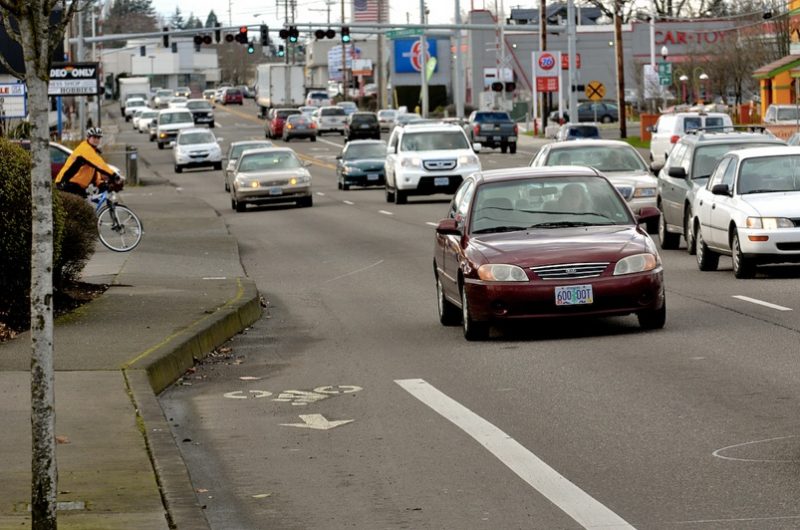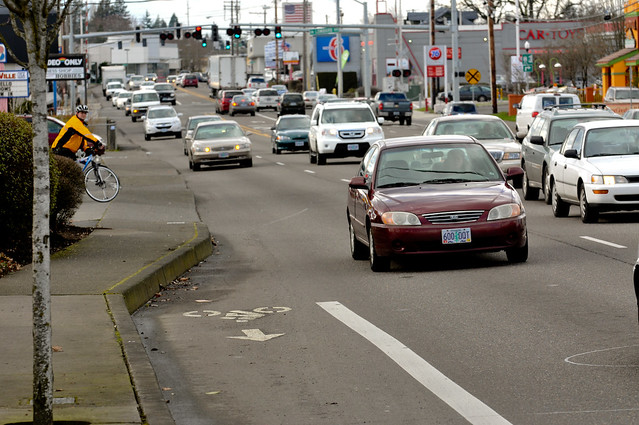One of the frustrating facts of life at BikePortland is that we’ve never had time to cover the big Clark and Washington County suburbs nearly as much as we’d like. But if you bike in Washington County and haven’t followed the comments beneath this week’s Washington County post, you’ve been missing out.
Here’s one of the many interesting ideas shared beneath Wednesday’s post about the Bicycle Transportation Alliance’s new campaign to gradually assemble a continuous, 16-mile low-stress bikeway to TV Highway between Beaverton and Forest Grove. Reader AndyK was one of several to weigh in with some detailed critiques:
Thanks for covering this….really bad idea, though. The worst. Let’s focus on cost and benefits.
If you have that much money to spend, please improve the east-west bike routes we already have (Cornell, Baseline, Farmington and Evergreen) by taking them to the next level of safety: protected bike lanes. They matter more at 45mph than they do at 25mph.
Everyone on the west side already knows that TV Highway is beyond hope and is only ridden by the brave or those without any other choice (these are the people riding on the sidewalk sans helmet). If you must spend money on an ODOT facility, use it on OR10 (Farmington), which has great potential, or build pedestrian crossing structures over TV HWY.
Bottom line: Lane protection would have a positive affect on all cyclists because it gets the interested but concerned cyclists out there and provides more safety for the ones who are already using it.
I would love to see other commenters chime in on this, and thanks again for covering this.
On the one hand, it’s clear that with Washington County and ODOT already looking to spend a bunch of money on TV Highway, this vision is more a target of opportunity for the BTA than the project it might have picked itself. On the other hand, AndyK and other readers are putting forth a vision for something that has never really been done in the United States: using modern protected bike infrastructure to create a low-stress bike network in a deeply auto-oriented suburb.
In a landscape where most bus stops and destinations are too far to walk to, comfortable biking arguably holds even more potential than it does in older, denser cities.
If any major suburb in the country could do it, it would be Beaverton: thick with bike lovers, staffed by bike-aware planners and engineers and wealthy enough to do almost any bike project it puts its mind to. The only thing missing is political will.


